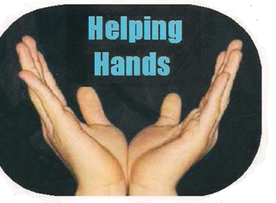Values Education for Life CIO
Charity Registration Number: 1189928
Our Response..
"Helping Hands" provides invaluable support for those young people most at risk through disaffection and truancy. In particular it offers those who may have social, emotional and behavioural difficulties the opportunity to regain their self esteem and sense of personal worth and responsibility within a social and educational context. This support programme works in collaboration with the school system and other statutory and voluntary agencies.
Each young person is provided with an individual programme of personal, social and character development and the necessary individual support needed to enable the programme to succeed. This may include working with the family where appropriate an a basis of mutual co-operation whilst introducing trained volunteer workers to provide each young person with focussed help and support.
The programme includes education and training elements, individual counselling and a number of selected learning and developmental experiences designed to promote self esteem and confidence. There is an emphasis on developing a better sense of personal responsibility and ecouragement to more adequately understand the structures of society and what society can offer.
In particular "Helping Hands" targets that group of young people who are at high risk of social and educational exclusion and aims to provide appropriate personal support for vulnerable youngsters that will enable them to remain in their school and take full advantage of their educational and training opportunities.
Helping Hands has now developed into a fully fledged project called "Success for All" and has an advisory team which includes Professors Ann Higgins D'Alesandro, Helen Haste and Peter Langdon and its' own website at www.success-for-all.group It is supported by VEFL and works in close collaboration with the charity.
Helping Hands..
Is an intervention programme for young people at risk of social and educational exclusion delivered through the use of trained volunteer mentors and a process of values clarification and social maturation.
The Need....
The complexities of modern life are proving more and more difficult for an increasing number of young people to cope with. The incidence of youth mental health difficulties continues to rise. A 2016 index of 301 diseases found mental health problems to be one of the main causes of all deaths worldwide, with 8000,000 suicides, accounting for 1.4% of all worldwide deaths.
Meanwhile premanent excxlusions from schools are growing. it is estimated that only 15% of excluded children return to full time, mainstream education. There is a link between exclusions from school and crime. The Audit Commission has found that 42% offenders of school age who were sentenced in the youth courts had been excluded from school. The characteristics of young people who are not participating are diverse, although there are some groups that are at particular risk of becomiing NEET (not in education, employment or training) This includes, for example, those with few or no qualifications and those with health problems, disabilities and low aspirations.
Teenage suicide is a serious and growing problem. The teenage years can be emotionally turbulant and stressful. Teenagers face increasing pressures to succeed and fit in with their peer group.
Disaffection with what education and training can offer, together with other social issues may frequently lead to a sense of hopelessness, lack of self confidence, self esteem and personal inadequacy. These can have a negative effect on individuals for the rest of their lives.
Values Education for Life 01827 711425
Values Education for Life
Values Education for Life

